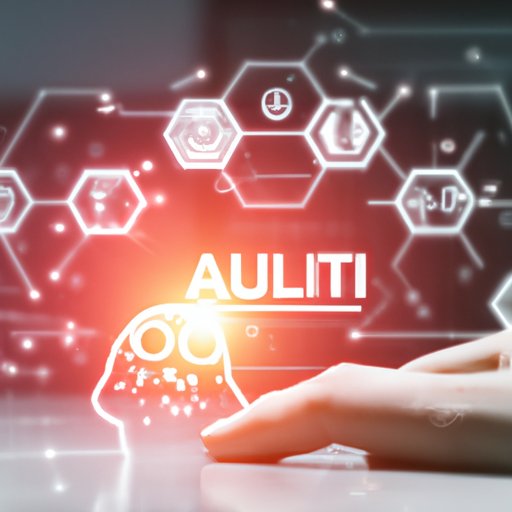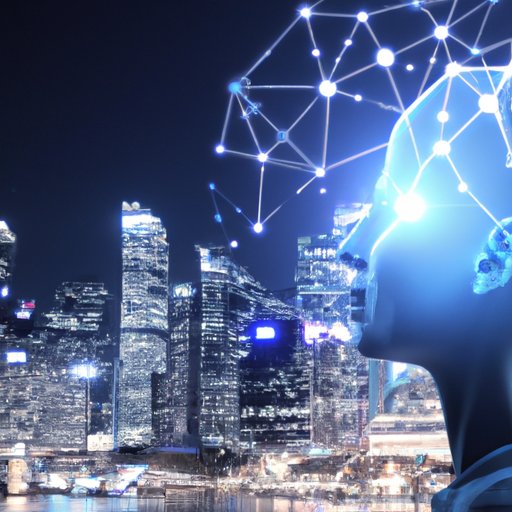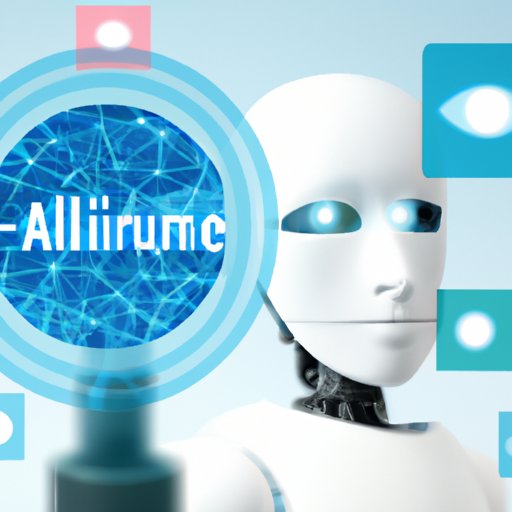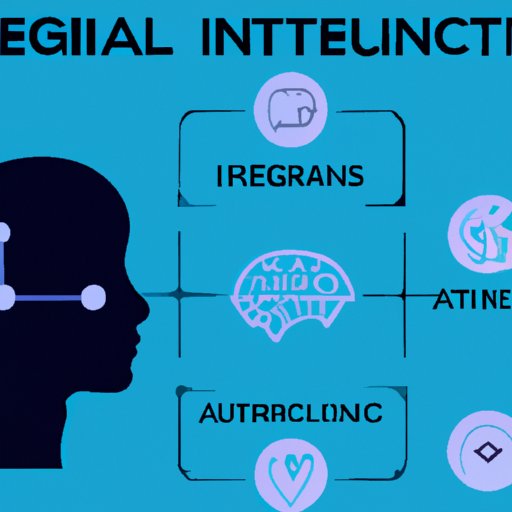Introduction
Artificial intelligence (AI) is a rapidly growing field of technology that has the potential to revolutionize many areas of our lives. AI is defined as “the ability of a computer or other machine to perform tasks commonly associated with intelligent beings.” It involves the use of algorithms and data-driven decision making to automate certain tasks and processes. AI promises to increase efficiency, accuracy, and cost savings in various industries, from healthcare to transportation. However, there are also potential risks associated with AI, such as job loss, privacy concerns, and unforeseen consequences. In this article, we will explore the potential benefits and risks of AI and examine its impact on society.

Exploring the Potential Benefits and Risks of AI
When it comes to the potential benefits of AI, there are several key areas that stand out. Firstly, AI can improve efficiency by automating tedious tasks and processes. This can result in significant time savings, allowing employees to focus on more important tasks. Secondly, AI can increase accuracy by using data-driven decision making. By relying on past data and trends, AI systems can make better decisions than humans in certain situations. Thirdly, AI can automate mundane tasks and processes, freeing up personnel to focus on more complex tasks. Finally, AI can reduce costs by eliminating the need for manual labor and streamlining processes.
On the other hand, there are also potential risks associated with AI. One of the most notable risks is the potential for job loss due to automation. As AI becomes increasingly sophisticated, it could replace certain jobs that were previously done by humans. Additionally, there are security and privacy concerns when it comes to AI. AI systems can be vulnerable to malicious attacks, and the data used by these systems can potentially be misused. Finally, there is the risk of unforeseen consequences, as AI systems may make decisions or take actions that have unintended consequences.

Examining the Impact of AI on Society
As AI becomes more pervasive in our society, it is important to consider the potential impacts it could have. For example, how will humans interact with AI systems? Will AI systems be able to understand and respond to human emotions? How will AI affect social dynamics and interactions? Additionally, what changes might AI bring to the workforce? Will AI create new jobs or simply replace existing ones? These are important questions to consider when examining the potential impact of AI.
Comparing Human and Machine Intelligence
In order to fully understand the potential implications of AI, it is important to compare human and machine intelligence. Humans possess certain advantages over machines when it comes to intelligence. For example, humans are capable of abstract thought and creativity, two qualities that machines are not yet able to replicate. Additionally, humans have the capacity for empathy and understanding, which machines currently lack. On the other hand, machines possess certain advantages over humans when it comes to intelligence. Machines are capable of processing vast amounts of data quickly and accurately, something humans are not capable of. Furthermore, machines can operate without rest, making them ideal for certain tasks that require constant monitoring.
Investigating the Security Implications of AI
When dealing with AI systems, it is important to consider the potential security implications. AI systems can be vulnerable to malicious attacks, as hackers can exploit weaknesses in the system’s code. Additionally, malicious AI programs can be created that are designed to cause disruption or damage. It is important to ensure that AI systems are properly secured in order to mitigate these risks.

Looking at the Ethical Considerations of AI
Finally, when discussing the potential benefits and risks of AI, it is important to consider the ethical implications. Who is responsible for the decisions made by AI systems? Should AI systems be allowed to make life-altering decisions without human input? Is it possible to create an AI system that is both ethical and effective? These are important questions to consider when discussing the ethical implications of AI.
Conclusion
In conclusion, while AI holds great potential to improve efficiency, accuracy, and cost savings, there are also potential risks associated with its use. It is important to consider the potential impacts on society, the differences between human and machine intelligence, the security implications, and the ethical considerations before implementing AI systems. Ultimately, the decision of whether or not to use AI must be made based on a careful analysis of the potential benefits and risks.
(Note: Is this article not meeting your expectations? Do you have knowledge or insights to share? Unlock new opportunities and expand your reach by joining our authors team. Click Registration to join us and share your expertise with our readers.)
